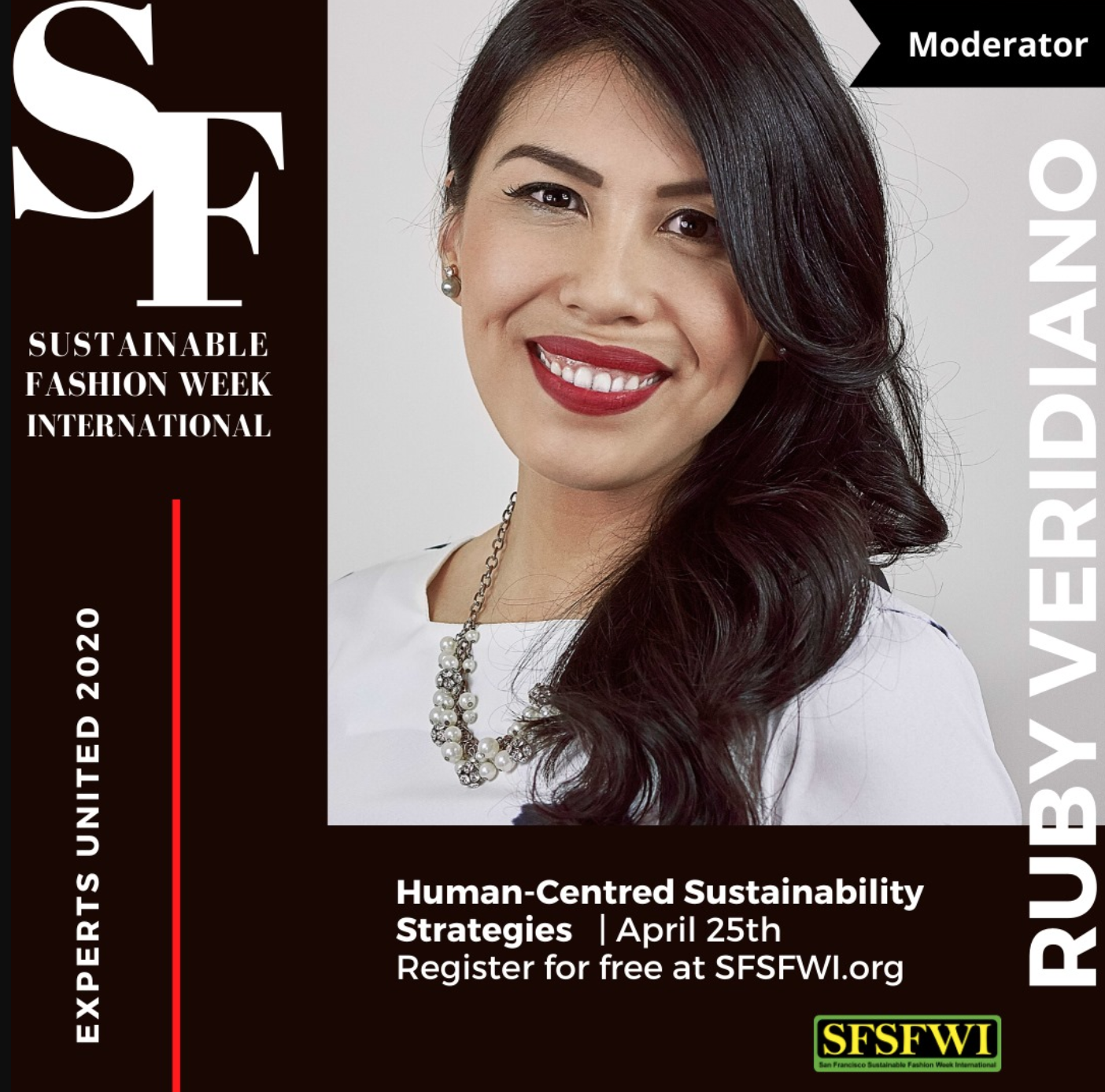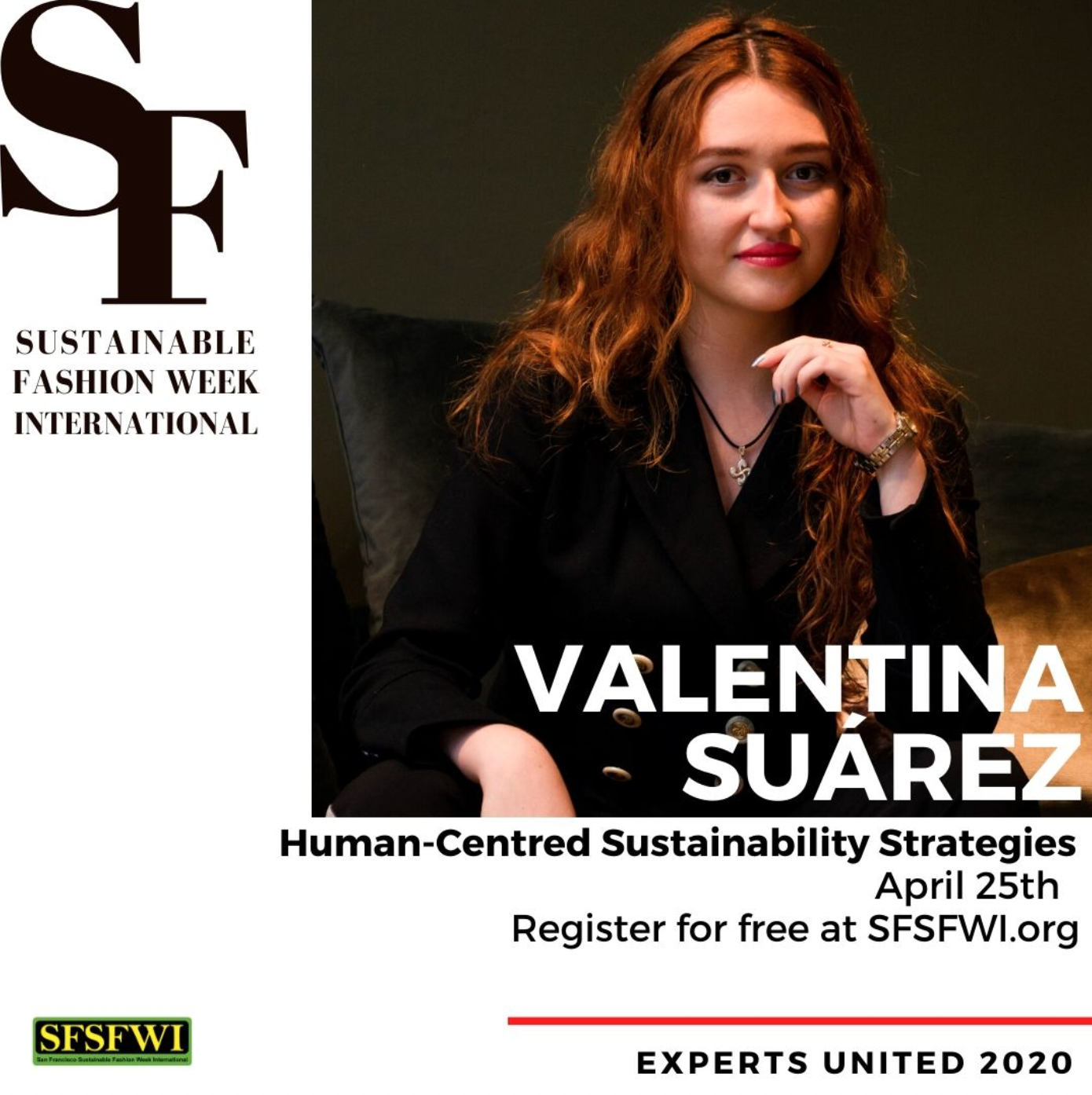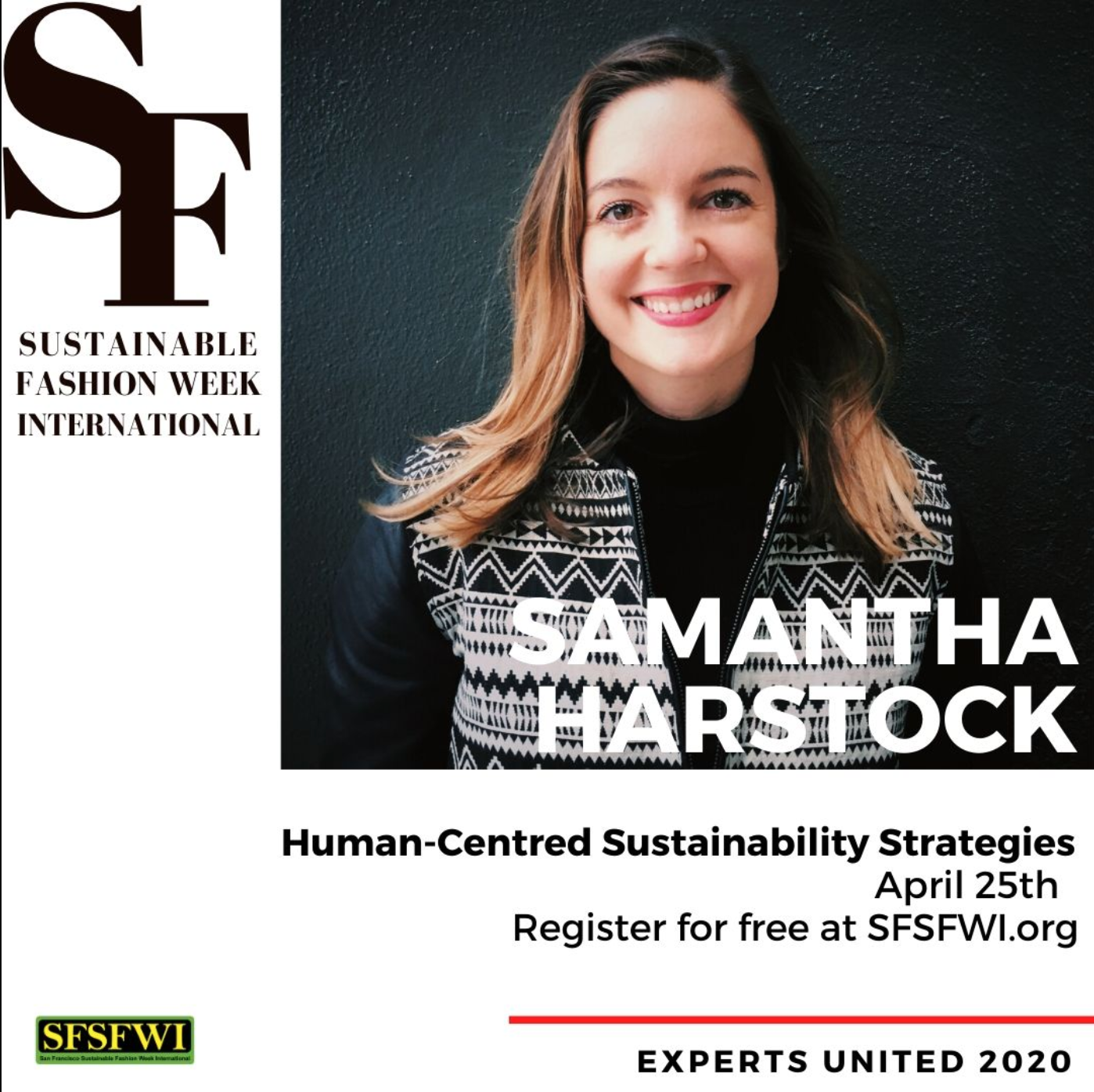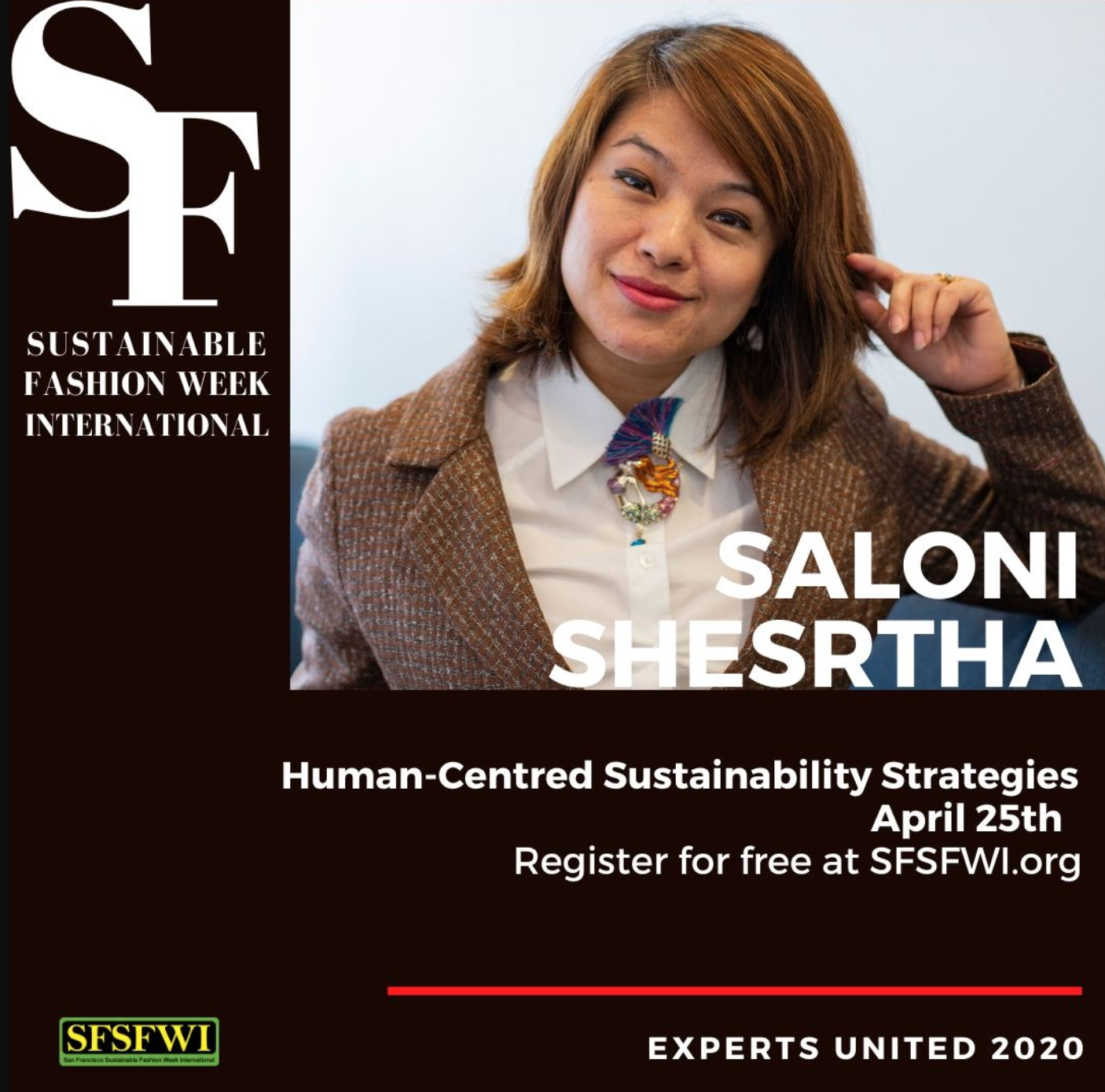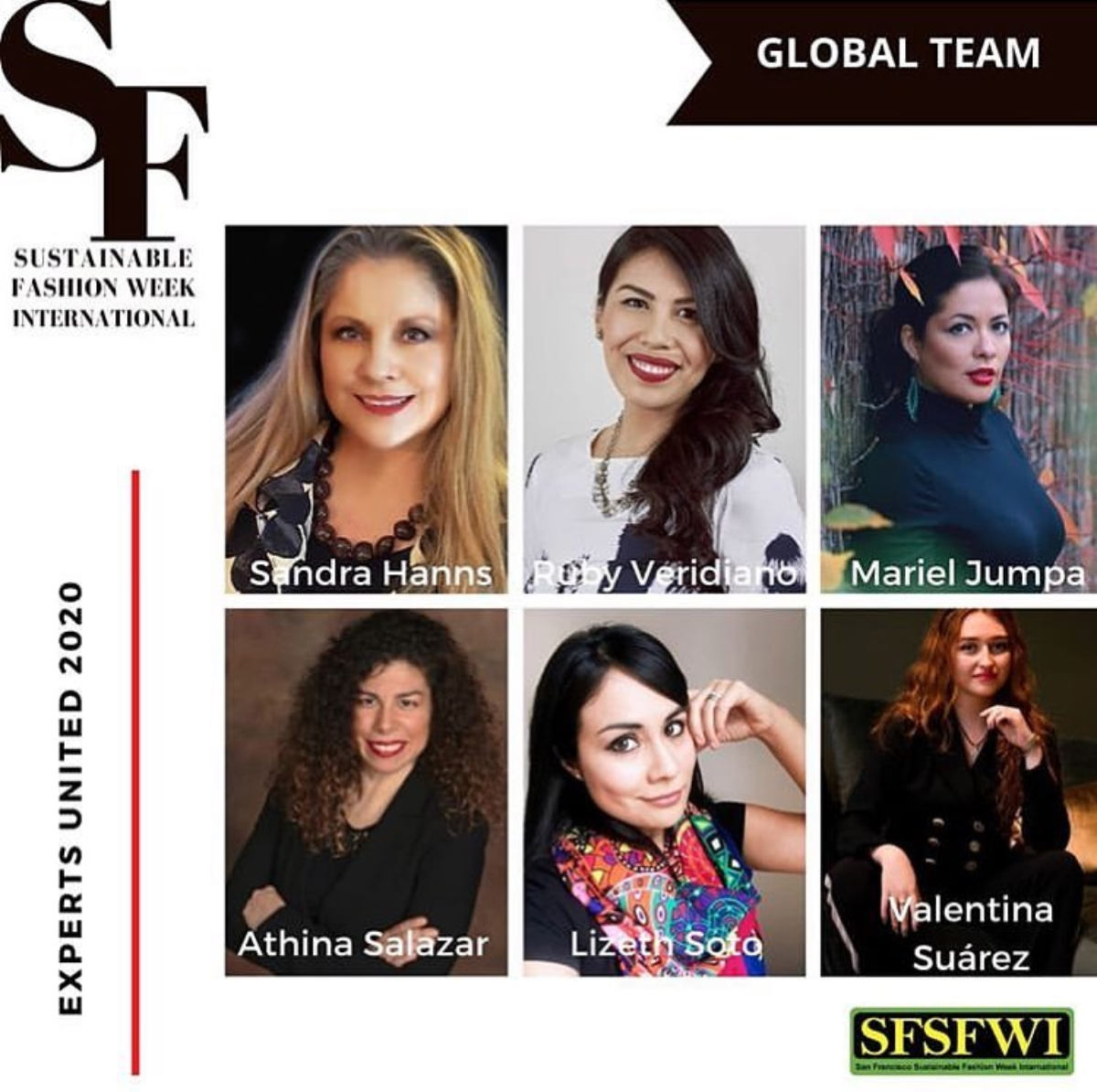This past weekend, I had the pleasure of joining a team of global changemakers* in launching the first virtual conference for San Francisco Sustainable Fashion Week International (SFSFWI). Due to the pandemic, the annual live event needed to pivot to a virtual conference, which we collectively produced. I also had the opportunity to moderate two panels entitled: Human-Centered Sustainability Strategies and Paris, the Sustainable Fashion Capital?, featuring some of the fiercest fashion activists from around the world.
Despite the challenge of adapting a live event into a virtual format, there was a distinct advantage: the local to global conversations that were made possible. Below, I share some of the key takeaways each conversation offered, with this one being my favorite: Sustainability Won’t Be Effective Unless it is Human-Centered & Intersectional.
Read on to learn HOW to achieve sustainability initiatives that are inclusive and put people first, and how Paris is achieving its goal of becoming the sustainable fashion capital of the world by 2024:
HUMAN-CENTERED SUSTAINABILITY STRATEGIES
Speakers: (scroll right at the image carousel below)
Faduma Aden, Founder & Advisor, Contelier (Sweden/Somalia) @fadumaaden
Sam Hartsock, Director of Education, Remake & Co-Founder of qb consulting (SF) @samleehartsock
Valentina Suarez, Co-Founder, Universo Mola (Latin America) @universomola
Saloni Shrestha, Founder & Design Head, AAGATI @aagati.california
When Sustainability is People-Focused, Businesses & Governments LISTEN to the People FIRST
If you want to create inclusive sustainability strategies, you must design your initiative based on what the communities need, rather than assume you have the right solution. Without listening to the community, you cannot actually solve their problems. When you take time to gather information to listen to their needs, then you can co-create and partner with communities to create win-win initiatives that in turn, have a long-term impact on both people and the planet.
This is relevant when it comes to a subject like cultural appropriation, which is a big topic in the fashion industry. Valentina Suarez of Universo Mola pointed out that this is often the case with indigenous communities. Many big fashion brands take ideas from indigenous artisans without giving them proper credit or compensation. As a result, products get backlash from their audiences. Instead, listen to communities and co-create with them as partners. Then ensure that the way these initiatives are communicated are coming from the lens of community partnership, not top-down leadership.
To see an example of a brand executing best practices with artisans, see the work of Saloni Shrestha at AAGATI.
There Must be Diverse Representation of Leadership in the Decision Making Process
If everyone on the decision making table looks like you, that’s the first sign that you’ve got some improvements to make. Without consulting with diverse thought leaders, you are not actually serving all of your audience.
This is made even more evident with reactions to COVID. Panelist Faduma Aden of Contelier remarked that in Sweden, the response to the pandemic was mainly communicated in Swedish, which left out a huge part of the multi-ethnic community. This not only leaves these communities vulnerable, but in turn, also endangers the rest of the population. If you are not able to offer solutions or communicate in a way that speaks to the diversity and multi-cultural makeup of your audience, then you have some improvements to make in inclusivity – which in turn, can also improve your ability to serve a wider market.
Partnership & Community Always Wins.
According to Sam Hartsock of Remake and Saloni Shrestha of AAGATI, many big brands cancelled their orders in the middle of the pandemic, leaving thousands of makers completely out of work and pay during the most critical time. While it is understood that businesses have had to make tough decisions during this period, many big brands have already placed these orders and factories have already begun production while covering initial costs.
Despite many of these orders already in production, big brands have either delayed payment or cancelled their orders altogether. We want to invite big businesses to view their supply chain workers as long-term partners, not as disposable workers, which means caring for them through the good and the bad.
Moreover, the millennial generation is vocal about these types of issues, and demand transparency and social responsibility from businesses they support, so taking care of your supply chain isn’t just the right thing to do, but it is also a necessary business decision.
The brands that will succeed in this post-Covid era (with an increasingly conscious consumer generation) are those who are pro-active about implementing social responsibility and sustainability strategies that feel real and authentic.
Here is the video of the complete panel talk at the San Francisco Sustainable Fashion Week - Experts United 2020 digital conference.
PARIS, THE SUSTAINABLE FASHION CAPITAL?
Speakers: Catherine Dauriac, President of Fashion Revolution France @fash_rev_france @cityzencat
Lemaris Loren, Founder & Designer of LemLoren & Fashion Professor at IFA @lemloren
For this Goal to be Achievable, it Needs Multi-Layered Partnerships In and Out of the Industry, AND A Business incentive
Paris is aiming to become the Sustainable Fashion Capital of the World by 2024, the same year as the Olympic Games. According to Catherine Dauriac, President of Fashion Revolution France, this goal has become a priority for the City of Paris not only because Paris is historically the Fashion Capital of the World, but because of a demand from citizens and a law that passed that enforces anti-waste, circular economy practices. Thanks to this law, companies are banned from discarding or destroying any unsold goods. The law gives businesses a direct motivation to participate in the movement in order to remain compliant, giving them an obligation to participate. In order for sustainability to work, it must give incentives and set up win-win situations. And it must also involve partners in and out of the industry to make it a success.
Sustainability Begins at the Design Process
Many future fashion designers & professionals study in France, so it is imperative that they are educated early on about how to participate in sustainability. Luckily, the next generation is already invested in these concerns, and are committed to learning how they can shift the industry. Lemaris Loren, fashion designer and professor at IFA Paris, sustainability begins from the beginning of the design process, when designers choose what materials they will use to create their collections. Selecting the material will then inform the rest of the process, from where it’s made and how it’s made, to what the material can accomplish.
Both Catherine and Lemaris do work in consulting the next generation of fashion designers trained in Paris to become forces of change in the industry.
****
Thank you all who joined us for the conference! To learn more about the movement, please have a look at the website and at @sfsfwi.
*Once again, a great pleasure to join this phenomenal team of global women changemakers!
@sandrahanns: CEO and Founder of SFSFWI & Experts United
@rubyveridiano: Writer, Fashion Journalist, & TV Presenter from California & based in Paris, France
Mariel Jumpa: CEO and Founder of @SlowFashionWorld from Uppsala, Sweden
Valentina Suárez: Co-Founder and Director of @universomola from Montevideo, Uruguay &
Bogota, Colombia.
@LizethSotoRivas: Founder of @Bohetnika / Art Director @SlowFashionWorld Mexico-Germany
Athina Salazar: Chief Possibility Officer at @life_2_design from Sacramento, CA

